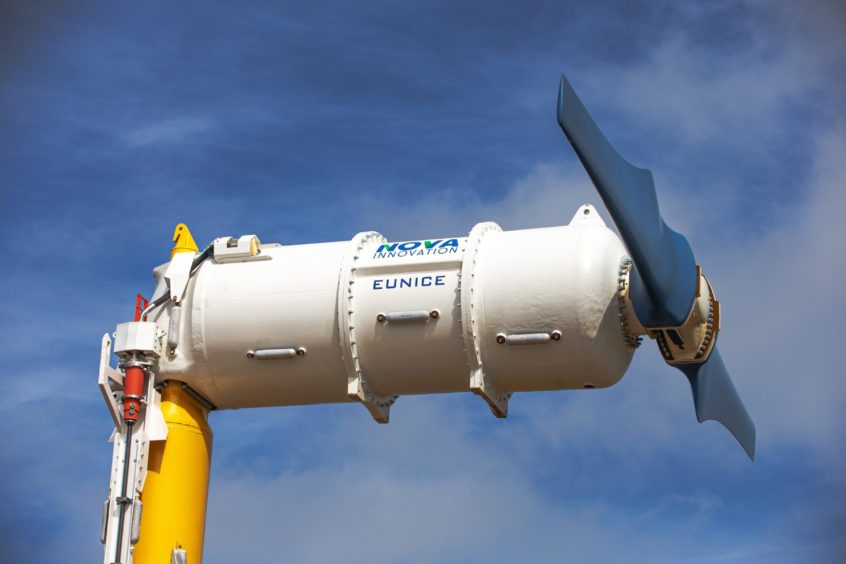
Tidal energy pioneer Nova Innovation has secured Innovate UK funding that could help deliver the first tidal turbine array in Indonesia.
Innovate UK has awarded £200,000 to the FLITE scheme (Feasibility of Larantuka and Indonesian Tidal Energy), a project that will deliver a feasibility study for a 7 megawatt (MW) tidal array in the country’s Larantuka Strait.
Larantuka Strait lies between the islands of Flores and Adonara and has one of the strongest tidal currents in Indonesia.
The array would use Edinburgh-based Nova’s next-generation 100kW tidal turbines. The technology was first launched as part of the world’s first offshore tidal array in Shetland’s Bluemull Sound in 2016.
FLITE is the first Asian project for Scottish-based Nova Innovation, who will partner with Indonesian university Institut Teknologi Sepuluh Nopember (ITS) to deliver the work.
ITS will conduct on-site technical and socio-economic research supporting the business case for the array.
The Innovate funding follows a £2 million cash injection from the Scottish Government to develop the first European assembly line to mass manufacture tidal turbines, and to techniques and tools to deploy turbines around the world.
This was bolstered by a further £6.4m from the Scottish National Investment Bank in September.
Nova is already working to develop a 1.5MW tidal project in Nova Scotia, Canada, and has signed a memorandum of understanding to explore opportunities offshore France.
Nova CEO Simon Forrest, said Indonesia had “vast tidal energy resources” that could generate clean, predictable energy for the country.
“By working closely with our Indonesian partners, we will accelerate the harnessing of this untapped resource, capable of powering Indonesia for generations to come,” he added.
The company met with members of the Indonesian delegation to COP26 in Glasgow to discuss the country’s potential for tidal energy. With a population of over 270 million people spread across 17,500 islands, Indonesia’s electricity grid is currently dominated by fossil fuels, which accounted for 83% of electricity generation in 2020.
The Indonesian Government has committed to increasing its renewable energy capacity by 2030, and recently updated its nationally determined contributions (NDCs) which would enable it to reach net zero by 2060 or earlier.
ITS vice rector Bambang Pramujati said: “The eastern region of Indonesia has the characteristics of an archipelago and abundant natural energy sources. The electricity supply system in this region has to deal with a variety of geographical factors, uneven population distribution and an uneven distribution of energy needs.
Mr Pramujati said that collaborative research between ITS and Nova Innovation would deliver a feasibility study for the tidal array in the Larantuka strait, with the aim of understanding “economic and technical feasibility issues” and providing confidence for investors.
UK Government Minister for Exports, Mike Freer MP, added: “Congratulations to Nova Innovation on their grant from Innovate UK. COP26 showed us all how exciting initiatives like this can help the UK – and the planet – build back greener.
“Clean growth is at the heart of our trade policy and the deals we are negotiating around the world will drive green exports and investment, create jobs and tackle the threat of climate change”.
Recommended for you
